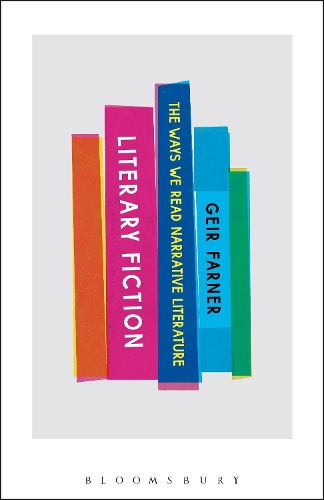
Literary Fiction: The Ways We Read Narrative Literature
(Paperback)
Available Formats
Publishing Details
Literary Fiction: The Ways We Read Narrative Literature
By (Author) Professor Geir Farner
Bloomsbury Publishing PLC
Bloomsbury Academic USA
27th March 2014
United States
Classifications
Tertiary Education
Non Fiction
Literary studies: fiction, novelists and prose writers
801
Physical Properties
Paperback
336
Width 140mm, Height 216mm
417g
Description
Insofar as literary theory has addressed the issue of literature as a means of communication and the function of literary fiction, opinions have been sharply divided, indicating that the elementary foundations of literary theory and criticism still need clarifying. Many of the "classical" problems that literary theory has been grappling with from Aristotle to our time are still waiting for a satisfactory solution. Based on a new cognitive model of literature as communication, Farner systematically explains how literary fiction works, providing new solutions to a wide range of literary issues, like intention, function, evaluation, delimitation of the literary work as such, fictionality, suspense, and the roles of author and narrator, along with such narratological problems as voice, point of view and duration. Covering a wide range of literary issues central to literary theory, offering new theories while also summarising the field as it stands, Literary Fiction will be a valuable guide and resource for students and scholars of the theory of literature.
Reviews
With examples taken from a variety of national literatures, Literary Fiction patiently revisits all the basic notions in narrative theory. Farner's observations are astute, and his solutions provocative. Chapters on suspense and the evaluative component in interpretation provide the icing on the cake. -- Luc Herman, Professor of American Literature and Narrative Theory, University of Antwerp, Belgium
An engaging read, Farner's Literary Fiction is an exhaustive retelling of the development of the various schools of literary criticism, from post-WW II domination of New Criticism through the wave of semioticians, political ideologues, and then finally the post-postmodernists, who see literary criticism as a rainbow palette from which one may blend critical approaches. The volume presents a rewarding continental perspective of modern "lit crit." The book will prove useful as a backgrounder or as a brief refresher. Summing Up: Recommended. Upper-division undergraduates through faculty. -- D. L. Hadaller, Bronx Community College * CHOICE *
What can a linguist do for Americanist literary critics Plenty. As a rhetorician and cognitivist, Geir Farner brings more sources to bear on literary study than does the usual linguist. He offers not only revisions of old theories, but also shows how literary fiction communicates and what it communicates. As such, these new arguments bridge gaps between narratology in general, and cognitive theory in particular. Clear and original, Farners study comprises an important argument in narratology and cognitive theory. [T]his study will be helpful for a wide range of readersfrom advanced students through senior scholars. In particular, Americanist literary critics and rhetoricians who are interested in narratologys application to historicist and feminist matters will benefit from this study. And so will cultural and intellectual historians studying historiography, for this work is probably the most relevant exploration of literary forms influence on narrative since Hayden Whites Metahistory (1973), The Content of the Form (1987), and Figural Realism (1999). As such, this work deserves a high place on the Parnassus of American Studies. * U.S. Studies Online *
Author Bio
Geir Farner is Professor of Dutch Language and Literature in the Department of Literature, Area Studies and European Languages (ILOS) at the University of Oslo, Norway.
